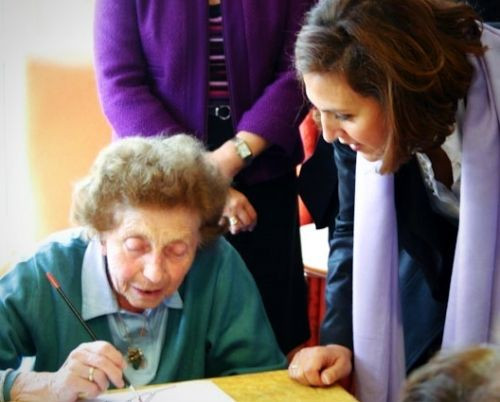Course correction needed for Alzheimer's therapies, experts warn

Misaligned research, medical challenges and harsh economics are thwarting efforts to slow the destructive course of Alzheimer's disease in the United States, according to a trio of nationally regarded Alzheimer's researchers writing a "Perspective" in Thursday's (Jan. 27) issue of the journal Neuron.
The foremost obstacle is that the most promising preventive strategies are being tested in patients firmly in the grip of Alzheimer's disease — the ones least likely to be helped.
The approach would be similar to testing statins — drugs widely used to prevent heart disease — in patients who are already in cardiac arrest, according to Dr. Todd Golde, director of the UF College of Medicine's Center for Translational Research in Neurodegenerative Disease.
With Dr. Edward Koo of the University of California, San Diego, and Dr. Lon S. Schneider of the Keck School of Medicine at the University of Southern California, Golde pointed to a lack of alignment between studies in human volunteers, which focus on treatment, and preclinical laboratory studies, which are aimed at prevention.
"If we do the right types of clinical studies, we have the ability to move toward prevention, which would have a huge impact on this disease," said Golde, a professor in the department of neuroscience at UF's McKnight Brain Institute. "But we have to overcome our 'prevention versus treatment' dilemma. We already have more than 5 million people affected, and half of people in nursing homes, or more, have Alzheimer's disease. As society ages, we are just going to continue to see Alzheimer's drain the economy and the quality of human life."
Without medical breakthroughs, a projected 7.7 million patients in the U.S. will have Alzheimer's by 2030, according to the Alzheimer's Association. That number will grow to between 11 million and 16 million by 2050.
Researchers say solving the treatment-prevention problem will require the development of biomarkers — substances in the body that point to a disease — to identify patients before they show the symptoms associated with Alzheimer's. With biomarkers, it may be possible to test Alzheimer's drugs in pre-symptomatic volunteers.
"The dilemma is, can you treat people as if they have Alzheimer's if they do not?" said Koo, co-director of the Shiley-Marcos Alzheimer's Disease Research Center at UC San Diego. "That's the catch-22."
Most proposed Alzheimer's disease therapies target so-called "brain plaques" — proteins that clog the spaces between brain cells. Experimental models suggest that therapies targeting these proteins, known as amyloid beta-peptide, may be effective.
Approximately 90 experimental therapies intended to slow or stop the progression of the disease are under way, many of them targeting Alzheimer's hallmark brain plaques, according to the Alzheimer's Association. The problem is the strategies are likely to be much less effective when tested in patients who are already experiencing confusion, memory loss or personality changes.
But simply placing more emphasis on prevention has its own complications, the researchers say. To date, no drug candidates have been found to be effective at prevention or suitably safe enough for a patient to take for a lifetime.
And even if such a drug were found, clinical testing would take well more than a decade and cost pharmaceutical companies millions of dollars. If the drug were successful — and there is no guarantee — the company's patent would expire before it had a chance to recover its expenses.
"It is important to find ways to ensure that the commercial sector will invest in prevention trials that may take 10 years or more to complete," Koo said.
The authors said they are not the first to point out misalignment between clinical and preclinical studies, or summarize current therapeutics, or critique how trials are conducted.
But by presenting the issues in a comprehensive way, they hope to spur discussion among members of the research community, pharmaceutical companies and regulatory bodies to address the challenges.
"What we've done is collect those points and suggest what has to happen to help patients who are suffering from this awful disease," Golde said.



























